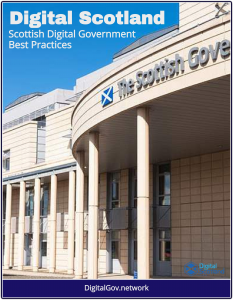AI in Scottish Education: Navigating the New Landscape for Teaching and Learning
Exploring the evolving practices for how AI can be harnessed to enhance educational outcomes for all learners in Scotland.
 The emergence of powerful AI tools is rapidly transforming the educational landscape globally, and Scotland is no exception.
The emergence of powerful AI tools is rapidly transforming the educational landscape globally, and Scotland is no exception.
This roundtable panel discussion brings together perspectives from various institutions to explore the current state of AI in Scottish education and its implications for teaching and learning.
The panel delves into the opportunities and challenges presented by AI, discuss practical strategies for integration, and consider the ethical considerations that must guide its implementation.
The Transformational Impact of AI on Education
Artificial Intelligence (AI) is revolutionizing education by personalizing learning experiences. Adaptive platforms like DreamBox and intelligent tutors like Duolingo tailor content to individual student needs, adjusting lessons in real-time to address gaps or accelerate progress. These systems can boost outcomes by 15-20%, supporting diverse learners, including those with disabilities, through customized delivery.
AI also streamlines administrative tasks, saving educators significant time. Tools like Gradescope automate grading, while AI optimizes scheduling and resource allocation, reducing administrative workloads by up to 30%. This allows teachers to focus on student engagement and curriculum development, enhancing educational quality.
By enhancing accessibility, AI makes education more inclusive. Real-time translation tools and platforms like Coursera provide global access to learning, with AI-driven apps reaching over 50 million users in low-income regions, per UNESCO. AI chatbots, like those at Georgia Tech, support remote learners with 24/7 assistance.
AI-driven analytics offer insights into student performance, with platforms like Canvas predicting at-risk students and reducing dropout rates by up to 10%. Immersive tools like Labster’s virtual labs and gamified apps like Kahoot boost engagement by up to 40%, particularly in STEM, by making learning interactive.
Despite its benefits, AI poses challenges, including data privacy risks, potential biases in algorithms, and the digital divide, which limits access in low-income areas. Addressing these requires transparent AI development and infrastructure investment. Looking ahead, AI will support lifelong learning, global collaboration, and AI literacy, but ethical frameworks and teacher training are essential to ensure equitable outcomes.
Scottish AI Alliance
The Scottish AI Alliance, tasked with delivering Scotland’s AI Strategy since its launch in March 2021, provides a range of insights and resources to integrate trustworthy, ethical, and inclusive AI into education.
The Alliance emphasizes collective leadership and public participation to ensure AI aligns with Scotland’s values of fairness and transparency. A key resource is the *Living with AI* course, a free, beginner-friendly online program that explains AI’s role in education and society, covering ethical implications and real-world applications over 4-6 hours.
For primary education, the Alliance, in partnership with Children’s Parliament and The Alan Turing Institute, offers a P5-7 Teaching Pack with six lesson plans, videos, and activities to introduce AI concepts and children’s rights, encouraging critical thinking about AI’s benefits and risks in classrooms. The Scottish AI Playbook provides practical toolkits and guides for educators to adopt AI responsibly, focusing on strategic implementation and academic integrity.
Additionally, the Alliance hosts events like the Scottish AI Summit and collaborates with organizations like Jisc to offer AI training and maturity models for educational institutions. These resources aim to empower educators and students to navigate AI’s transformative potential while addressing ethical concerns like data privacy and bias.




